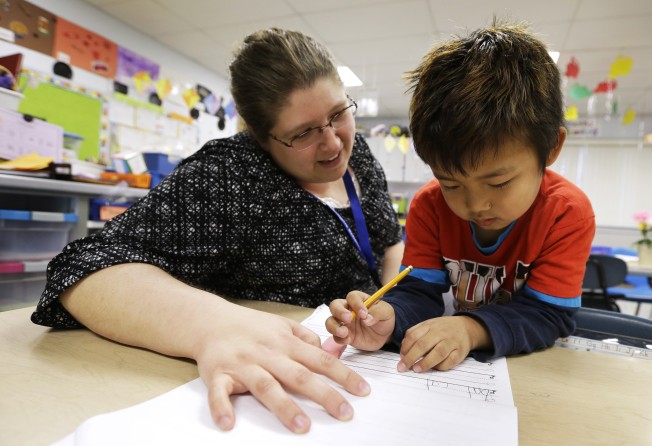Asia's family bonds a model for America
Amy Wu believes Asia's strong family networks could provide America's stressed-out parents with a potential solution to their childcare crisis

A mother-in-law can be a blessing in disguise, I started to say to an American friend who was feeling down after her six-month-old daughter was rejected by the day care centre because she was crying too much. (But isn't that what babies do?) My friend was desperate.
Her in-laws live within driving distance, however. Why not see if they could help, I suggested. She cut me off. She'd rather pay the hefty price of day care, interview half a dozen babysitters and wade through the Bermuda Triangle of childcare than ask them for help. To be fair, the mother-in-law might prefer playing golf in her sunset years.
Welcome to the national childcare deficit in the United States.
Having lived in both Asia and the US, I've seen the best and worst of both worlds when it comes to the age-old dilemma of modern women juggling work and family. Hong Kong has the advantage in two ways: swift access to affordable domestic help and, more importantly, a family unit that acts as a support system.
Those without domestic workers often get help from their mother or mother-in-law. Again and again, I've observed how well it works. Grandparents get to bond with a grandchild while the parents can focus on their jobs. Hong Kong's working mothers are fortunate.
By contrast, America's two-income households are facing a childcare crisis, made worse by the lacklustre economy. Times are tough, two incomes are necessary, so day care is necessary; but it is costly, and there's often a lengthy waiting list.
This means a good job is necessary to pay for day care, while an even better job is needed to afford a Chinese- or Spanish-speaking nanny who also demands a salary, health care, vacation days, sick days, and maybe even a plane ticket to Tahiti. It's all good if you are Yahoo chief executive Marissa Mayer, but many women work just to make ends meet.
According to the US Census Bureau, about 12.5 million children under five are enrolled in some form of childcare. The average cost of full-time day care for a four-year-old ranges from the equivalent of HK$30,00 to HK$91,000 annually, according to a non-governmental organisation. No wonder the birth rate has been falling.
The solution is simple, though: adopt Chinese culture. As Confucius advocated, family should be a support system - and, yes, this includes taking care of the very young and the very old.
Of course, Eastern and Western values can be poles apart. Asians are much more communal.
Maybe Americans are independent to a fault. Independence is good, but there are times when Asian-style family values can be useful. For example, in childcare.
In the meantime, many of my friends in their 30s continue to flail within the Bermuda Triangle of childcare: it can mean taking your child to work, spending most of your salary on what ends up being lacklustre childcare, or staying at home until your child goes to kindergarten.
As a woman in her 30s, even as the biological clock ticks, I find myself standing my ground. The Bermuda Triangle doesn't look like fun.
Amy Wu is an American-born Chinese writer and commentator